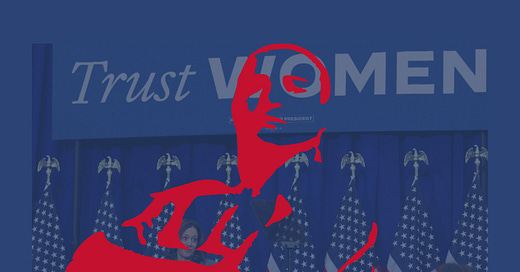Richard Higgott joins me from Budapest to talk about “The Strongman Problem” in this week’s podcast.
We hear the term “strongman” a lot today, but what does it mean and is it really important? Richard Higgott is a professor at the Brussels School of Governance and a fellow at the Robert Schuman Centre for Advanced Study, European University Institute. I got to know him earlier this year after coming across the article “Strongman Leadership and the Limits of International Cooperation.” I was eager to include something about strongmen a new edition of Berkshire’s Women and Leadership, but had found little written about the impact of such leaders on opportunities for women. He and his coauthor Taelyn Reid agreed to contribute a new chapter, and we stayed in touch during the US presidential campaign.
Two points directly from the podcast:
[Strongman leadership] brooks no criticism. It expects loyalty. It appoints on the basis of loyalty. And we're seeing this massively in the United States at the moment. The way these guys get into power is through masculinist approaches. The interesting thing is that the structures of office, of institutional office, favor an approach that is masculinist for getting you into office. Self-confidence, male bonding, self-admiration, arrogance, all those things help you get elected. What they don't do is help you govern.
[David] Owen was the guy who articulated this thing called the hubris syndrome, which he actually called the illness of position. Bear in mind that Owen, before he became a politician, was a neurosurgeon. So his background in the psychopathology of this is impeccable. And he looked at the degree to which there was a heroic model of leadership and the degree to which it could be attractive to a populist community if articulated well. Now, one of the interesting things he did say was that leaders tended to grow into this over time. They didn't automatically arrive. They didn't automatically arrive as strongmen. They became strongmen over time, as they learned things. The other thing he said, quite interestingly, was that for some leaders who have been strongman leaders, when they cease to be leaders, they recover from this illness of position.
Richard goes on to say that Donald Trump did not recover from this illness - he got worse.
Read more about the challenges of leadership for both women and men in Women and Leadership: Navigating Change from Ancient Times to the Present, which also includes new chapters on #MeToo and Conservative Women Leaders.
Available from Amazon in print and Kindle, as well as on other platforms. Readers of this newsletter can order a copy directly from Ingram Global at 50% off until the end of January 2025.
The Strongman Problem | Abstract: The rise of authoritarian “strongman” leaders on today’s global stage presents a momentous challenge to productive cooperation between nations and has consequences for women in leadership at all levels. Research into the causes and consequences of this type of leadership is therefore a new imperative for those who study women and leadership.
Read more about Richard Higgott. His next book, written with a colleague at Rutgers, is called In Search of the Unicorn: The EU’s Vain Search for Strategic Autonomy in a Post Liberal World Order.
















Share this post